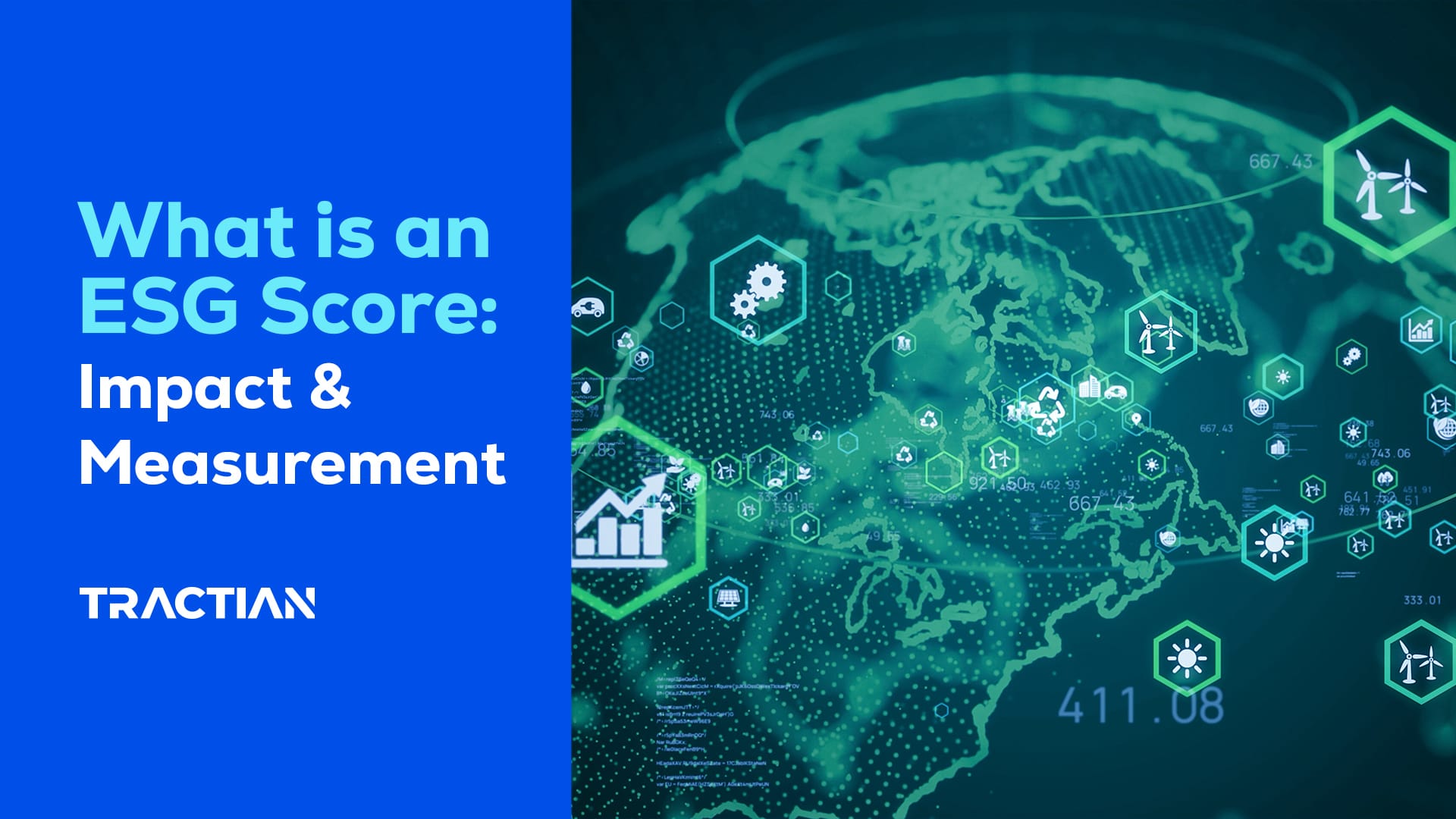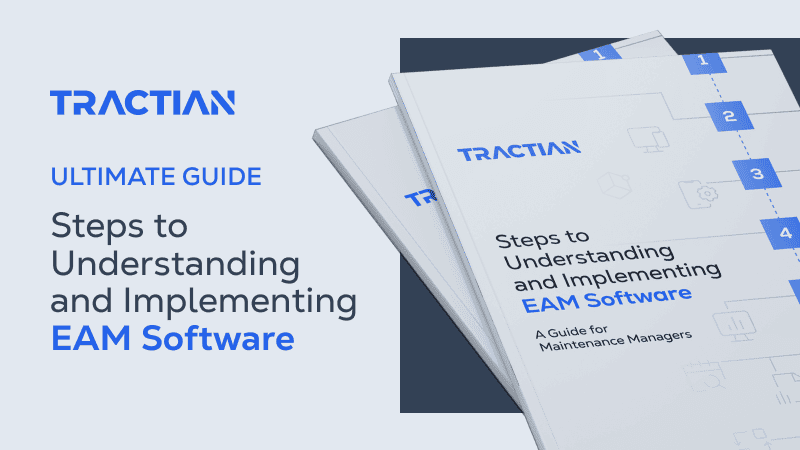ESG scores provide a quantitative measure of how well a company is performing in key areas: Environmental, Social, and Governance. Understanding a company’s score is like unraveling the DNA of its commitment to sustainability and ethical practices.
These scores, distilled from a myriad of data points, give investors, customers, and other stakeholders a clear picture of a company’s dedication to sustainable and responsible business practices.
But what exactly do these scores reveal?
Well, they offer insights into how a company manages environmental challenges like carbon emissions and resource conservation.
On the social front, they reflect a company’s approach to employee rights, community engagement, and customer satisfaction. And in the governance arena, they gauge the company’s leadership structure, executive pay, audits, and shareholder rights.
Why does this matter, especially in the industrial sector?
Because in an era where transparency is key, an ESG score it’s a statement about a company’s future readiness, risk management, and its alignment with the evolving expectations of society.
It’s a comprehensive way of assessing a company’s resilience and long-term value creation potential.
This guide aims to demystify ESG scores, making them a practical tool for understanding a company’s holistic impact and performance. Keep reading!
What is an ESG Score? Defining the Basics
An ESG score, in its essence, is like a report card for a company’s performance in environmental, social, and governance aspects.

But what does it really tell us? Let’s break it down:
What Exactly Is an ESG Score?
An ESG score is a quantitative measure, often represented as a numerical or letter rating, that evaluates a company’s actions and effectiveness in ESG areas.
It’s a way to quantify and communicate a company’s commitment to operating responsibly in these three critical areas.
Components of an ESG Score
- Environmental: this looks at how a company manages its impact on the environment.
- Social: this part assesses how a company manages relationships with employees, suppliers, communities, and customers.
- Governance: this section evaluates the company’s leadership, audits, internal controls, and shareholder rights.
An ESG score isn’t just a nice-to-have, but it’s becoming a must-have in today’s business world.
Why? Mainly, because it tells a story about a company - how it’s navigating its environmental impact, treating its people, and governing itself.
In an industry-focused context, it speaks volumes about a company’s long-term viability and ethical standing.
The Importance of ESG Scores for Companies
ESG scores are not just about ticking boxes. They are a crucial barometer for a company’s commitment to responsible practices.
But why do they matter so much? Let’s discuss it:
- Impact on Investor Decisions: investors are increasingly drawn to companies with high ESG scores. Why? Because a strong ESG score often indicates lower risk and a forward-thinking mindset - remember that. It’s a sign that a company is not only profitable but also sustainable and ethically sound. This can make a company more attractive for investment, as it’s seen as better prepared for future challenges.
- Boosting Company Reputation: in today’s world, a company’s reputation is everything. A high ESG score can enhance a company’s image, signaling to customers, partners, and employees that it is committed to ethical practices. This can lead to increased customer loyalty, improved employee morale, and a stronger brand overall.
- Ensuring Long-term Sustainability: ESG scores force companies to look beyond short-term gains. They encourage practices that ensure long-term sustainability, not just in environmental terms, but in social and governance aspects too. This means thinking about how actions today will impact the world tomorrow, leading to more sustainable business practices that can stand the test of time.
How are ESG Scores Calculated? And Who Calculates Them?
So, how exactly are ESG scores calculated, and who’s doing the math?
It’s a process that varies slightly depending on who you ask, but let’s get into the nitty-gritty.
The Process of Calculation
Each ESG rating agency has its own secret sauce, a unique set of criteria, benchmarks, and guidelines.
But at the core, they’re all trying to do the same thing: measure a company’s impact in environmental, social, and governance spheres.
This involves a deep dive into data from public records, past ESG reports, and research. Agencies also consider self-reported data from companies, adding another layer to their assessment.
Popular Frameworks Used
See… Agencies don’t just pull data out of thin air.
They lean on established ESG frameworks like the IFRS Sustainability Disclosure Standards, SASB Standards, and the GRI Standards, to name a few.
These frameworks provide a roadmap for what to measure and how.
Who Calculates Them?
Enter the third-party ESG rating agencies.
These are the ones who crunch the numbers and come up with the scores. They use all the gathered information, feed it into their algorithms, and voilà - a rating is born.
(Of course, we’re simplifying the whole thing… It’s much more complicated).
Based on MSCI terms, which is one of the most popular agencies, companies are categorized as leaders, average, or laggards based on their ESG performance.

So, what’s the takeaway? An ESG score isn’t just a number. This is crucial here.
In fact, this score is a comprehensive evaluation of a company’s approach to some of today’s most pressing issues.
ESG Score: The Good, The Bad, and The Ugly
Remember those key factors from our ESG definitive guide? Let’s zoom in on the score itself. Here’s a snapshot:
The Good
- Guides Investment Decisions: ESG scores help investors identify companies committed to ethical practices, sustainable operations, and responsible governance. This can be a beacon for attracting investment.
- Enhances Reputation: a high ESG score can boost a company’s public image, showcasing its dedication to environmental and social responsibility.
The Bad
- Lack of Standardization: this is a major one. There’s no one-size-fits-all in ESG scoring. Different agencies use different criteria, making it challenging to compare scores across the board.
- Risk of Inaccuracy: often, the data used for these scores is self-reported by companies. Without third-party validation, there’s a risk of skewed or inaccurate information.
The Ugly
- Greenwashing: some companies might make lofty environmental claims to boost their scores, a practice known as greenwashing. This can lead to scores that don’t truly reflect a company’s environmental impact.
- Transparency Issues: there’s often a veil over the exact calculations and weightings used in ESG scoring. This lack of transparency can leave stakeholders guessing about what the scores really mean.
Users of ESG Scores: Who Benefits?
ESG scores are insightful tools used by various stakeholders. But who exactly benefits from them? Let’s take a closer look:
Investors
They’re perhaps the most avid users of ESG scores.
Why?
Because these scores offer a peek into a company’s potential liabilities, stakeholder relationships, and overall brand reputation.
A high ESG score can attract investors, signaling a company’s alignment with their values and its protection against future risks like pollution or poor governance.
Conversely, a low score can be a red flag, hinting at poor environmental, social, and governance practices, which might deter investors.
Financial Analysts
For financial analysts, ESG scores are a lens for evaluating risk and return.
By understanding a company’s commitment to sustainability, employee well-being, and good governance, analysts can identify potential pitfalls and opportunities that traditional financial metrics might miss.
This allows them to build diversified portfolios for their clients, optimizing returns while aligning with their values.
The Companies Themselves
Yes, companies use their own ESG scores as a mirror reflecting their operational strengths and weaknesses.
High scores can be a source of pride and a marketing tool, while low scores can be a wake-up call to improve practices.
Each of these groups uses ESG scores differently, but the common thread is clear: these scores are pivotal in making informed decisions that go beyond just financial returns.
They’re about understanding the broader impact a company has on the world and its future prospects.
Comparing ESG Scores Across Industries
ESG scores aren’t a one-size-fits-all, they vary significantly across different industries and sectors.
Why does this matter?
Because the environmental impact of a tech company is vastly different from that of a mining company.
Similarly, the social responsibilities of a healthcare provider differ from those of a retail chain.
This diversity makes context and industry-specific benchmarks crucial in interpreting ESG scores.
For instance, the MSCI ESG ratings use an industry-specific scoring methodology. This means they tailor their evaluation criteria based on the unique challenges and opportunities present in each sector.
Bloomberg ESG Data amalgamates data from various sources to provide a comprehensive view tailored to different industries.
Then you have issuers like Fitch Ratings and S&P Global, which align their ESG evaluations with the core business metrics relevant to the industries they assess.
They understand that the ‘E’ in ESG for a chemical industry company carries a different weight and implication than it does for a software company.
So, when looking at ESG scores, it’s essential to consider the industry lens.
Improving a Company’s ESG Score: Strategies and Best Practices
Improving a company’s ESG score it’s a journey toward genuine sustainability and ethical practices.
At first, it seems nearly impossible, but there are ways to do this… But how can companies make that leap?
According to BlackRock 360° methodology, the secret is to evaluate risks and opportunities:

Let’s explore some strategies:
- Enhancing Sustainability Practices: start with what impacts the planet. This could mean reducing carbon emissions, optimizing energy use, or investing in renewable energy sources. Companies should also consider sustainable sourcing and waste management to minimize their environmental footprint.
- Increasing Transparency: be open about what you’re doing. This involves not just reporting on ESG efforts but ensuring that these reports are accurate and verifiable. And yes: avoid the trap of greenwashing - making unsubstantiated claims about your environmental efforts.
- Engaging in Social Initiatives: show that you care about people. This means fair labor practices, supporting employee well-being, and engaging in community development. It also includes embracing diversity and inclusiveness within the organization.
- Corporate Governance: this is about how the company is run. Good governance involves ethical business practices, responsible executive compensation, and transparency in accounting and tax matters.
ESG Scores and Investment Decisions: A Critical Analysis
So, ESG scores are vital, yes, but without their own set of puzzles. Why are they gaining so much buzz?
Simple: investors are waking up to the fact that sustainable and ethical practices aren’t just nice-to-haves, they’re crucial for long-term success.
These scores are like a magnifying glass, helping spot companies that get this, shining a light on those poised to thrive amid challenges like new regulations or societal shifts.
But it’s not all easy-and-done.
Ever tried comparing ESG scores from different agencies? It’s a bit like comparing apples to oranges - lack of standardization is a real headache.
And then there’s the data itself, often self-reported by companies, making you wonder: how much can we trust these numbers?
When weaving ESG scores into investment strategies, it’s a bit like detective work - you’ve got to look deeper, question more, and understand the full story.
We’ve said it before: it’s not just about the scores, it’s about the stories they tell and the truths they may or may not reveal.
This way, investors can navigate towards investments that are truly sustainable and ethically sound, driving responsible and meaningful change.
Future Trends in ESG Scoring
As we move forward, emerging trends in ESG scoring are reshaping the landscape. We’ve tracked some of the main ones, check it out:
- Greater Emphasis on Scope 3 Emissions: expect a significant focus on supply chain transparency, with companies prioritizing the tracking and reporting of Scope 3 emissions, which account for a substantial portion of their carbon footprint.

- Technological Advancements: the use of AI, blockchain, and machine learning in ESG reporting is set to revolutionize data collection and analysis.
- Increased Mandatory Disclosures: with new global regulations, such as the EU’s Corporate Sustainability Reporting Directive and California’s climate disclosure bills, companies will face more stringent sustainability measurement and reporting standards.
- Rising Importance of Biodiversity: biodiversity loss is becoming a mainstream ESG topic. Expect more focus on investment funds dedicated to biodiversity, aligning with the global deforestation goals and evolving nature-related disclosure recommendations.
- Politicized Environment Around ESG: companies will need to navigate a politicized landscape, balancing pro and anti-ESG legislation and stakeholder views.
- Impact Investing and Sustainable Finance Growth: the rise in impact investing and sustainable finance will continue as investors align their portfolios with their values, driving capital towards sustainable companies.
Conclusion
So, yes: ESG scores are more than mere numbers. In fact, they symbolize a company’s dedication to sustainability and ethics.
Essential in today’s investment world, they inform decisions, showcase corporate responsibility, and offer a holistic view of a business’s impact.
With technological advancements and regulatory shifts, ESG scores are rapidly evolving.
For investors and business leaders, these scores are a vital guide, steering towards ethical investment and sustainable practices.
In modern business, embracing ESG is not just desirable - it’s imperative.
So, what about your business? What are you doing to improve your score?
ESG Score FAQ
Who gives ESG score?
ESG scores are provided by third-party rating agencies like MSCI, Sustainalytics, and Bloomberg - to name a few. These agencies use various frameworks and data sources to evaluate a company’s sustainability practices.
What does the ESG stand for?
ESG stands for Environmental, Social, and Governance, representing key factors in assessing a company’s ethical impact and sustainability practices. These guidelines drive, mainly, investment decisions.
How is ESG calculated?
ESG scores are calculated using data from a company’s environmental practices, social responsibility initiatives, and governance policies. Rating agencies use industry-specific benchmarks and frameworks to assess and score these elements.
Who runs ESG?
ESG is not ‘run’ by a single entity, it’s a collective framework used globally. ESG scores are compiled and issued by independent rating agencies, which analyze companies’ adherence to environmental, social, and governance criteria.


